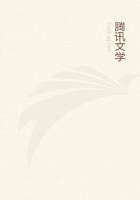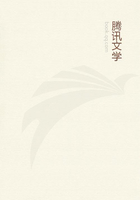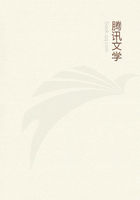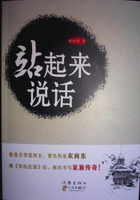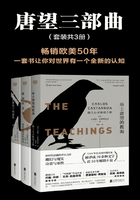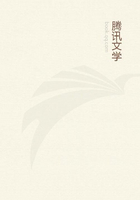I will tell you, so far as I am authorized to speak for the opposition, what we mean to do with you. We mean to treat you, as near as we possibly can, as Washington, Jefferson, and Madison treated you. We mean to leave you alone, and in no way interfere with your institution; to abide by all and every compromise of the Constitution, and, in a word, coming back to the original proposition, to treat you, so far as degenerated men (if we have degenerated) may, according to the examples of those noble fathers, Washington, Jefferson, and Madison. We mean to remember that you are as good as we; that there is no difference between us other than the difference of circumstances. We mean to recognize and bear in mind always that you have as good hearts in your bosoms as other people, or as we claim to have, and treat you accordingly. We mean to marry your girls when we have a chance, the white ones I mean; and I have the honor to inform you that I once did have a chance in that way.
I have told you what we mean to do. I want to know, now, when that thing takes place, what do you mean to do? I often hear it intimated that you mean to divide the Union whenever a Republican, or anything like it, is elected President of the United States. [A voice: "That is so."] "That is so," one of them says; I wonder if he is a Kentuckian? [A voice: "He is a Douglas man."] Well, then, I want to know what you are going to do with your half of it? Are you going to split the Ohio down through, and push your half off a piece? Or are you going to keep it right alongside of us outrageous fellows? Or are you going to build up a wall some way between your country and ours, by which that movable property of yours can't come over here any more, to the danger of your losing it? Do you think you can better yourselves, on that subject, by leaving us here under no obligation whatever to return those specimens of your movable property that come hither? You have divided the Union because we would not do right with you, as you think, upon that subject; when we cease to be under obligations to do anything for you, how much better off do you think you will be? Will you make war upon us and kill us all? Why, gentlemen, I think you are as gallant and as brave men as live; that you can fight as bravely in a good cause, man for man, as any other people living; that you have shown yourselves capable of this upon various occasions: but, man for man, you are not better than we are, and there are not so many of you as there are of us. You will never make much of a hand at whipping us. If we were fewer in numbers than you, I think that you could whip us; if we were equal, it would likely be a drawn battle; but being inferior in numbers, you will make nothing by attempting to master us.
But perhaps I have addressed myself as long, or longer, to the Kentuckians than I ought to have done, inasmuch as I have said that whatever course you take we intend in the end to beat you. I propose to address a few remarks to our friends, by way of discussing with them the best means of keeping that promise that I have in good faith made.
It may appear a little episodical for me to mention the topic of which I will speak now. It is a favorite position of Douglas's that the interference of the General Government, through the Ordinance of '87, or through any other act of the General Government never has made or ever can make a free State; the Ordinance of '87 did not make free States of Ohio, Indiana, or Illinois; that these States are free upon his "great principle" of popular sovereignty, because the people of those several States have chosen to make them so. At Columbus, and probably here, he undertook to compliment the people that they themselves have made the State of Ohio free, and that the Ordinance of '87 was not entitled in any degree to divide the honor with them.
I have no doubt that the people of the State of Ohio did make her free according to their own will and judgment, but let the facts be remembered.
In 1802, I believe, it was you who made your first constitution, with the clause prohibiting slavery, and you did it, I suppose, very nearly unanimously; but you should bear in mind that you--speaking of you as one people--that you did so unembarrassed by the actual presence of the, institution amongst you; that you made it a free State not with the embarrassment upon you of already having among you many slaves, which if they had been here, and you had sought to make a free State, you would not know what to do with. If they had been among you, embarrassing difficulties, most probably, would have induced you to tolerate a slave constitution instead of a free one, as indeed these very difficulties have constrained every people on this continent who have adopted slavery.
Pray what was it that made you free? What kept you free? Did you not find your country free when you came to decide that Ohio should be a free State? It is important to inquire by what reason you found it so. Let us take an illustration between the States of Ohio and Kentucky. Kentucky is separated by this River Ohio, not a mile wide.
A portion of Kentucky, by reason of the course of the Ohio, is farther north than this portion of Ohio, in which we now stand.
Kentucky is entirely covered with slavery; Ohio is entirely free from it: What made that difference? Was it climate? No. A portion of Kentucky was farther north than this portion of Ohio. Was it soil?
No. There is nothing in the soil of the one more favorable to slave than the other. It was not climate or soil that mused one side of the line to be entirely covered with slavery, and the other side free of it. What was it? Study over it. Tell us, if you can, in all the range of conjecture, if there be anything you can conceive of that made that difference, other than that there was no law of any sort keeping it out of Kentucky, while the Ordinance of '87 kept it out of Ohio. If there is any other reason than this, I confess that it is wholly beyond my power to conceive of it. This, then, I offer to combat the idea that that Ordinance has never made any State free.


